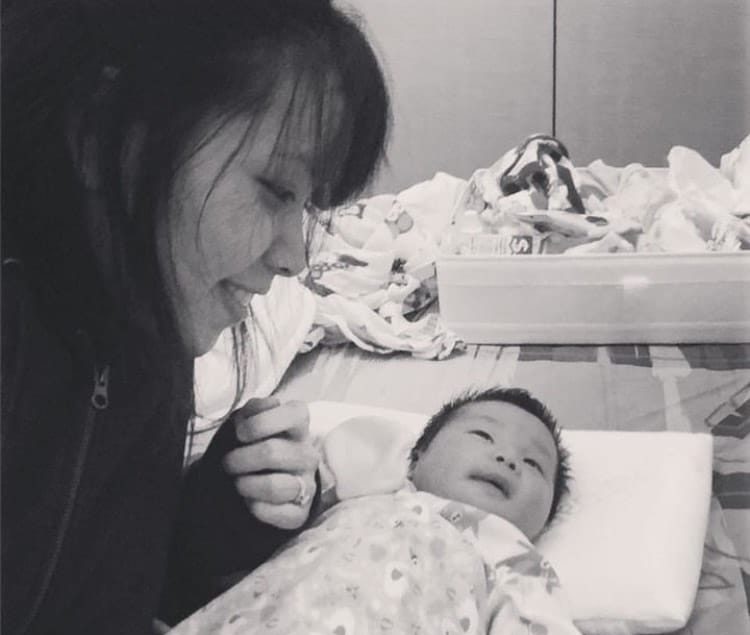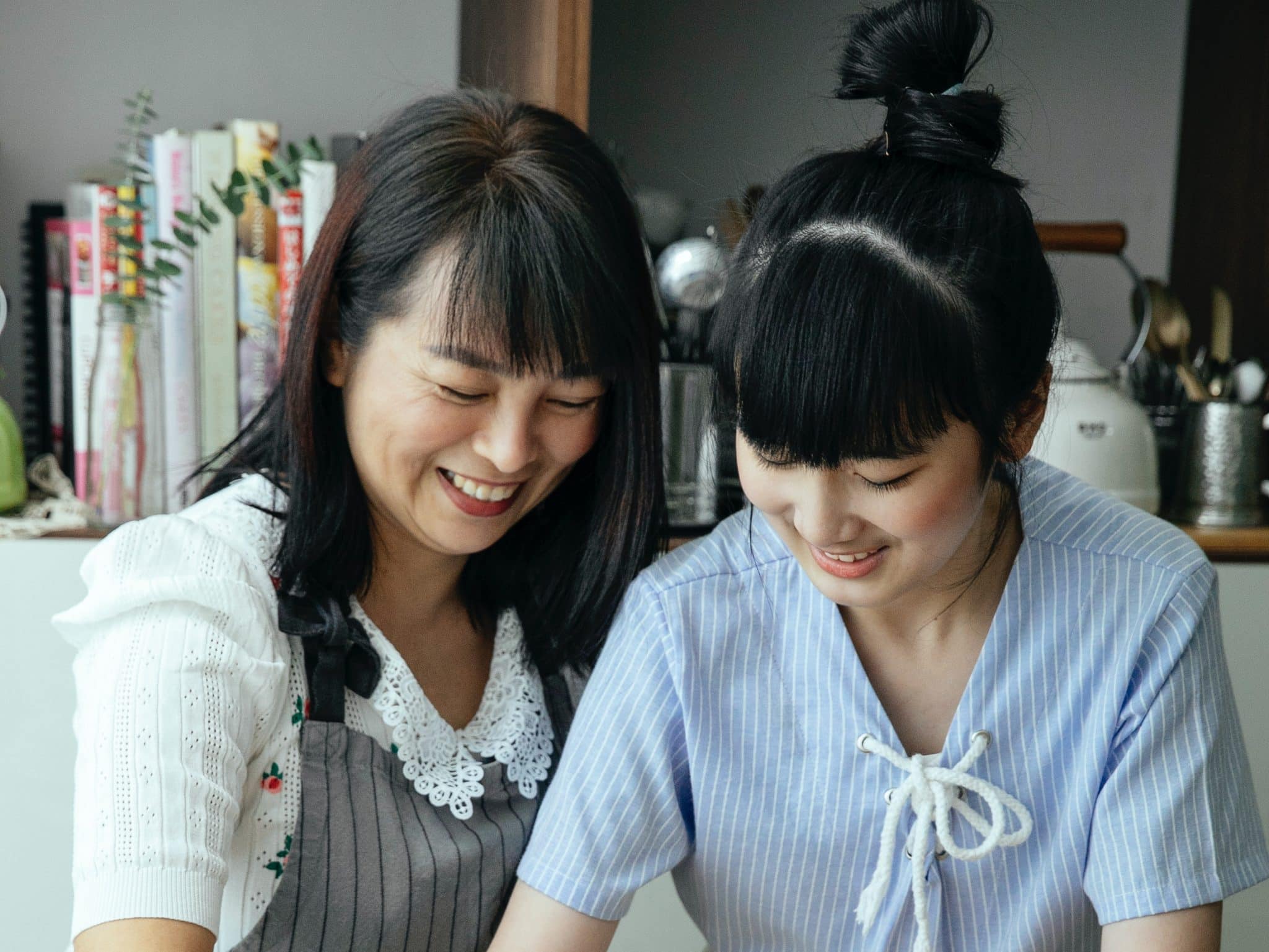7 tips on how to talk to your adult children about sex
by Christine Leow // July 4, 2023, 1:44 pm

Rev Jenni Ho-Huan (centre) with her husband, Rev Philip Huan, and children, Keith and Abigayle. All photos courtesy of Rev Jenni Ho-Huan.
When your children were little, you talked to them about their bodies, about good touch and bad touch.
As they teetered on the edge of adolescence, you raised the issue of dating, physical boundaries and sex as God intended it.
When they hit their teens, you revisited the topic with greater urgency because the opposite sex was no longer just an idea, but real people your children wanted to date.
But what about your adult children? Is there still a need to talk to them about sex? And if so, how?
Pastor and parent Rev Jenni Ho-Huan, who co-founded ChurchLife Resources with her husband, Rev Dr Philip Huan, admits that such conversations are easier to have if parents have been having open chats with their children over the years.
For parents who hope to start talking to their adult children about sex and intimacy, she offers seven tips.
1. Go beyond the “how”s of sex
When her daughter, Abigayle, turned 20, Rev Jenni sat her down to talk about sexual awakening.
While their earlier chats were about the mechanics of sex, their new discussion went deeper and touched on what drives a person to want sex.

Rev Jenni (right) believes in having open conversations with her daughter, Abigayle, even on sensitive topics like sex.
Said Rev Jenni: “I told her, ‘You will feel certain things in your body. But the Bible tells us not to awaken love before its time (Song of Solomon 8:4)’.”
“Something will be birthed out of (sex) even if you don’t have a baby. You birth a tie and a commitment.”
She tells her daughter that one way love can be awakened prematurely is through watching romcoms or reading romance novels.
“Our sexual understanding – our emotional and physical response – is impacted by our thought life. If you are always reading those fantasy books, you are more prone to these actions. It’s like a switch. Once you turn it on, it’s hard to turn off,” said Rev Jenni.
Abigayle’s father also shared with her the effects of physical touch from a man’s perspective.
Said Rev Jenni: “We are physically affectionate people. Hugging doesn’t mean anything to us, but Daddy told her how guys can be aroused by visuals and touch, so she can be more aware and more circumspect about touch.”
2. Reinforce the proper place of sex
When we talk to our children about sex, it should always be discussed in the context of marriage.
“You cannot take back what you have given. You can only keep going further.”
“Physical intimacy and sexual expressions are really very powerful gifts from God that allow us to experience ecstatic dimensions of life,” said Rev Jenni. “Our bodies are designed such that they fit during sex. In the context of marriage, it is a picture of union.”
On top of being a union between husband and wife, God also designed sex to birth life, Rev Jenni added.
“Something will be birthed out of it even if you don’t have a baby. You birth a tie and a commitment,” she tells her children. “If you are not prepared for the relationship to go to the next level and birth something you cannot manage, you shouldn’t be having sex.”
3. Walk them through possible consequences
Instead of merely telling her daughter what she should and should not do, Rev Jenni has open conversations with Abigayle about the possible consequences of having sex outside of marriage.
One example they discussed was the possibility of ending up with an unplanned pregnancy.
“We talked about the right thing to do. We are pro-life, so we are clear that we will keep the child,” said Rev Jenni, adding that they also spoke about the challenges of raising a child.
“That conversation made the topic a real thing and helped to reinforce how individual choices and actions do impact others.”
4. Establish boundaries together
When Abigayle entered a serious relationship, she discussed with her parents some of the physical boundaries that she and her boyfriend should keep – for example, not being alone in a dark place, keeping room doors open, no kissing on the lips, no staying over and no travelling together.
More than just “do”s and “don’t”s to follow, these boundaries were established based on a deeper understanding of the implications of these choices, said Rev Jenni.
“We talk about what some actions would mean to her and to him. Would it cause her to be unduly committed to the relationship?” she explained. “I told her, ‘You cannot take back what you have given. You can only keep going further.’”
5. Tailor the talk to the personality
Her son, Keith, was 17 when Rev Jenni decided to revisit the topic of sex with him. He was about to enter a polytechnic after spending 10 years in an all-boys’ school and had few friends of the opposite sex.

Keith and Abigayle are open to talking to their parents about sex because they know they will be heard and understood.
“I told him he was going to be an adult and asked him how he felt about girls. He wasn’t sure and wasn’t extremely curious,” said Rev Jenni.
Knowing their son’s personality, Rev Jenni and Rev Philip felt that he would benefit from a more structured approach compared to his sister. So, they advised him not to date until he turned 21. They did not have the same rules for Abigyale, who started dating when she was 20.
“I was surprised that he agreed at that point. He had observed his sister and thinks that relationships are so much work,” said Rev Jenni.
6. Exercise empathy
What has helped the Huans adjust their parenting styles to each child is what they call “exercises in empathy”.
Said Rev Jenni: “I imagine myself in my children’s shoes and I pray, ‘God, give me insights into my children.’ These exercises humble me to know and connect with them. I often emerge with a better idea of how to talk to them.”

Tough conversations in the Huan household are possible because of the close relationship Rev Philip and Rev Jenni fostered with their children since they were young.
One insight Rev Jenni gained after an empathy exercise was that “nostalgia makes things rosy”.
“I imagine myself in my children’s shoes and I pray.”
“God brought back memories of how I was quite a monster to my mum. It helped me realise that I was not intentionally rude to my mum. I adore my mum and would not intentionally want to hurt her.
“It is the same way with my daughter. It softened the way I approached her and talked to her.”
After another empathy exercise, Rev Jenni realised how overwhelmed her son must be, being inundated with so much information in the digital age.
She said: “I realised he had a lot to deal with and the education system is so demanding. I wept for my son after that. It helped me to check if I was adding to his work or helping him. It shifted how I dealt with him.”
7. Impart, don’t preach
Imparting requires dialogue, while preaching is a monologue, said Rev Jenni.
Imparting requires dialogue, while preaching is a monologue.
As much as they talk to their children about what is expected of them, the Huans encourage their children to give them feedback on the way they talk to them, their tone of voice and even their body language.
This allows for open conversations about all things, which helps when they discuss thorny topics like sex.
She said: “We talk adult to adult. Their maturity and reasoning may be different, and the conversation may not land where you want it to. So we give it some time and then we may talk again. Slowly, we win them over with negotiations. And we pray very hard.”
RELATED STORIES:
We are an independent, non-profit organisation that relies on the generosity of our readers, such as yourself, to continue serving the kingdom. Every dollar donated goes directly back into our editorial coverage.
Would you consider partnering with us in our kingdom work by supporting us financially, either as a one-off donation, or a recurring pledge?
Support Salt&Light



